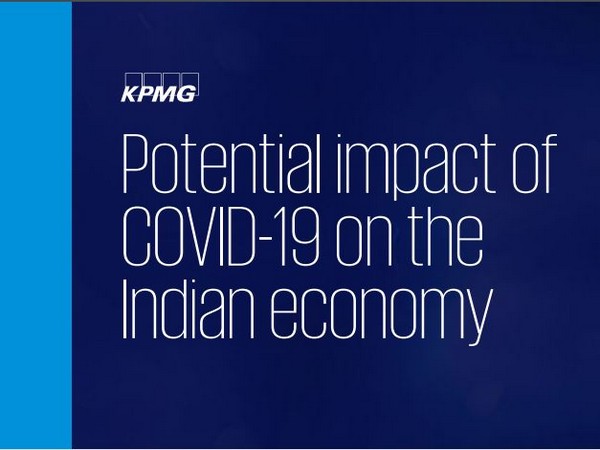Weak consumption during COVID-19 lockdown to drag down GDP growth: KPMG
The countrywide lockdown is likely to have a sizeable impact on the economy, most significantly on consumption which is the biggest component of GDP, KPMG India said on Monday.

- Country:
- India
The countrywide lockdown is likely to have a sizeable impact on the economy, most significantly on consumption which is the biggest component of GDP, KPMG India said on Monday. A significant reduction in urban transactions can lead to a steep fall in the consumption of non-essential goods. The impact will be even more severe if domestic supply chain disruption caused by the 21-day lockdown were to affect the availability of essential commodities.
Weak domestic consumption and consumer sentiment will have firms delay their investment, which will, in turn, put additional pressure on growth. Post COVID-19, some economies are expected to adopt de-risking strategy and shift their manufacturing bases from China which can create opportunities for India. KPMG India said the extent to which this opportunity can be leveraged is largely dependent on how quickly the economy recovers and the pace at which supply chain issues are addressed.
"Apart from providing robust safety nets for the vulnerable, a focus on ensuring job continuity and job creation will be imperative," said KPMG India Chairman and CEO Arun M Kumar. "And there is an urgent need to mobilise resources to stimulate the economy for increased demand and employment." Kumar said there are seven ways in which the business landscape is likely to evolve in the days to come: there will be a shift towards localisation, digital will get a real push, cash is king for businesses, businesses will move towards variable cost models, sensing and control capabilities will receive attention, supply chain resilience will become a central consideration, and businesses will look to become more agile.
Even before the onset of this pandemic, the global economy was confronting turbulence on account of disruptions in trade flows and attenuated growth. The situation has now been aggravated by the demand, supply and liquidity shocks that COVID-19 has inflicted. Once the pandemic is controlled, the shape and speed of the recovery in the United States and China will among the key factors determining the nature and traction of global economic recovery.
"It is our expectation at this time that the course of economic recovery in India will be smoother and faster than that of many other advanced countries," said the KPMG report. However, India's real GDP growth decelerated to its lowest in over six years in 3Q 2019-20 and the outbreak of the COVID-19 posed fresh challenges. Steps taken to contain its spread, such as the nationwide lockdown have brought economic activity to a near-standstill, with impacts on both consumption and investment.
While Indian businesses, barring a few sectors, can possibly insulate themselves from the global supply chain disruptions caused by the outbreak due to relatively lower reliance on intermediate imports, their exports to COVID-19 infected nations could take a hit. In sum, the three major contributors to GDP -- private consumption, investment and external trade -- will all get affected.
As the world and the Indian economy attempt to balance mitigating the health risks of COVID-19 with the economic risks, immediate measures need to be taken to prevent the collapse of liquidity, protect the vulnerable while enabling social distancing, intensify health interventions on a war footing, and unclog production and supply chains for this. (ANI)
(This story has not been edited by Devdiscourse staff and is auto-generated from a syndicated feed.)
- READ MORE ON:
- KPMG
- India
- China
- COVID
- United States
ALSO READ
US Delegation to Embark on Trade Mission to India to Discover Promising Agribusiness Opportunities
NEWSMAKER-He once sold tea, now India's Modi seeks his own 'tryst with destiny'
INSIGHT-India's Gandhi dynasty, trailing Modi, battles for political survival
ADB forecasts robust investment and consumer demand to boost India's GDP growth to 7% in FY25
India's Explosive Growth over the Past Decade, According to Silicon Valley Entrepreneur










